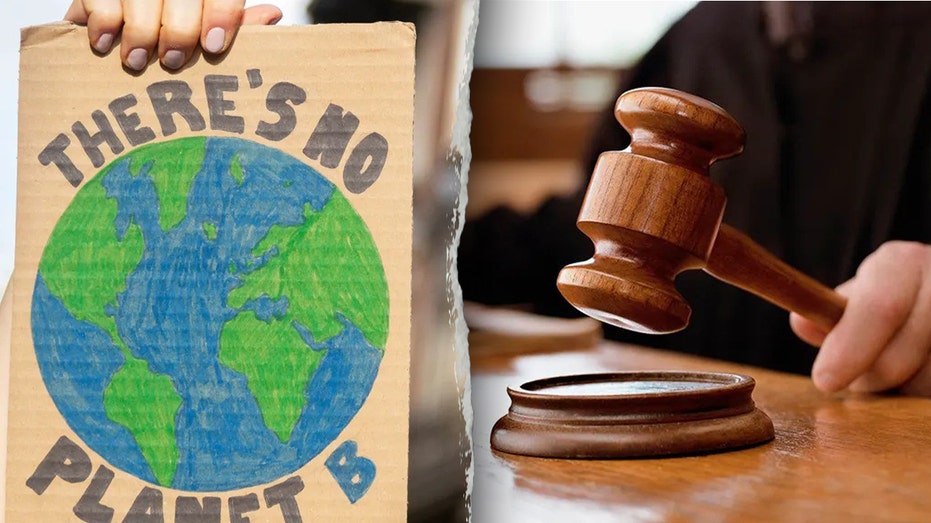Expert Warns Climate Lawfare in Blue-State Courts Could Harm US Energy Consumers Despite Environmental Goals
Fossil fuel advocate warns that activists' lawsuits across the U.S. are shaping national and global climate policies.

Climate change initiatives are increasingly being advanced through the courts by advocates targeting "tiny jurisdictions" nationwide, sparking growing concern among opponents that this strategy could have wide-reaching implications for domestic oil production and a host of other industries. The tactic relies on filing civil lawsuits in localized areas, with the potential to set powerful legal precedents that could ripple far beyond local boundaries.
President Donald Trump has signaled his intent to defend the fossil fuel industry from such lawsuits, taking preemptive legal actions in at least four states—New York, Vermont, Michigan, and Hawaii. His administration’s approach includes a recent executive order directing federal agencies to challenge state-level climate lawsuits that threaten domestic energy producers. But even as these preventative measures take shape, new legal cases continue to emerge in various Democratic-leaning jurisdictions, including Oregon, Colorado, and Washington. Critics argue these efforts threaten to reshape America’s economy by potentially limiting oil development and impacting sectors such as automobile manufacturing.
O.H. Skinner, executive director at Alliance for Consumers and a vocal defender of the fossil fuel sector, cautioned about the potential consequences. “You really have to understand that these suits matter a ton,” Skinner stated, warning that a single court ruling could empower plaintiffs to seek billions of dollars and force major energy producers to halt core operations nationwide. Highlighting the scale of these cases, he referenced a pending lawsuit in Multnomah County, Oregon, where officials are seeking $52 billion in damages from oil companies. “One county gets 50 billion. Another county gets 50 billion. What’s their real goal? Bankrupting the energy industry across the whole country,” Skinner said. “If they were to get such a win, it would start to have a huge effect.”
The Trump administration has responded with a coordinated legal counteroffensive, directing Attorney General Pam Bondi to identify and act against state laws or civil actions perceived as harmful to domestic energy interests. Supporters of these moves allege that the lawsuits are less about environmental protection and more about leveraging local courts to dictate national policy—sidestepping Congress and presidential elections where climate initiatives have often stalled.
However, climate advocacy groups maintain that legal action is a necessary means of holding major polluters accountable and safeguarding public health. Our Children’s Trust, an Oregon-based nonprofit involved in several youth-led climate lawsuits, emphasized the urgency of transitioning to renewable energy. “No president can act in ways that harm our kids or tell states they have to power their electricity grid with fossil fuels when wind and solar are the cleaner, cheaper, and healthier option,” a spokesperson said. The group argues that renewable energy sources are now the most affordable option in many markets, and shifting away from fossil fuels would bring both economic and public health benefits, including reductions in childhood asthma rates.
The outcome of these courtroom battles remains uncertain, but the stakes are high. As litigation escalates between federal and local governments, observers warn that final decisions could reshape not just the energy sector but also American economic life at large. The clash between climate advocacy and the fossil fuel industry appears poised to intensify, with billions of dollars, livelihoods, and the nation’s environmental trajectory hanging in the balance.




